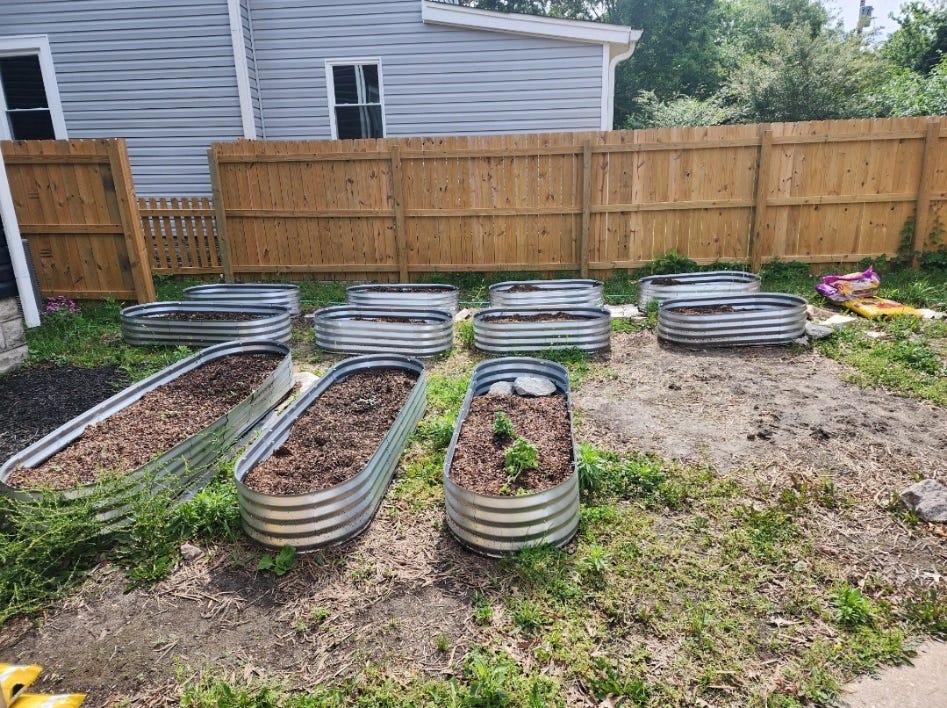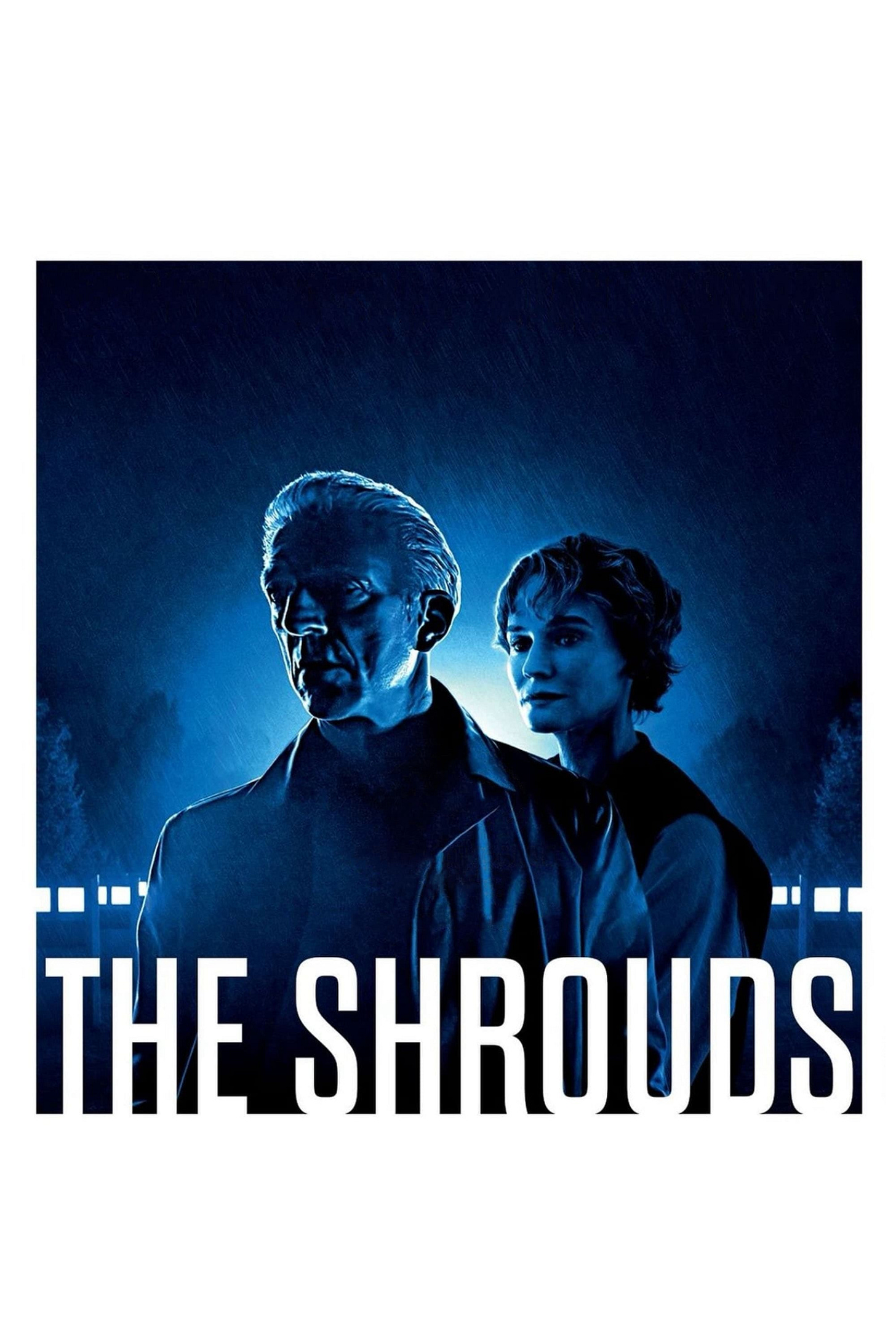I had a late night last night. I didn’t get home until midnight, I was busy watching movies. And then I woke up this morning and got back to work on my mom’s garden. I have some progress pictures but not from today. I put down mulch today, but I still need more paver stones.
Our community garden is well under way and the “Serenity Spiral” is as well. If you paid attention to the videos from the house show, that yard might look a lot different now. I told you it would. And by the end of next week it will look even better.
Tomorrow I have to take my mom to Staunton to do a Chicken Salad contest for my sister’s radio station. A lot going on there. This has been a tiring week, but tiring isn’t bad. I am just ready for a long nap. I almost fell asleep in the theater watching the second of my double feature.
Speaking of which, I saw Robert Schwartzman’s documentary Hung Up On A Dream about psychedelic rock band the Zombies. You probably have heard “She’s Not There” or “Time of the Season,” but you might not know much about the band. For all my time both being a music journalist and just being a hobbyist rock historian (music, not mineral), I didn’t know much about the band.
I learned a lot in the hour and fifty minute runtime, but I do feel the documentary went a little long. There wasn’t a lot of meat there, or the meat that was there was undercooked. Regardless, the documentary made me teary eyed a few times. The band was a bunch of poor kids from the countryside of England who worked hard and found massive success only to have managers and labels feast on that success and leave them with scraps.
Rod Argent (Singer/Keyboards), the younger cousin of Jim Rodford (later the bassist of Argent/The Kinks), pulled together Paul Atkinson (guitar), Hugh Grundy (drums), Colin Blunstone (lead vocals) and Paul Arnold (bass). Arnold left shortly after and was replaced by Chris White.
The songwriters made enough money to survive, but the band didn’t. After some huge tours in the US, they ran the numbers and realized they were getting ripped off so they fired their manager. The manager cancelled their record contract, that they earned after winning a battle of the bands, and they came back bent but unbroken.
Back in the UK, they booked Abbey Road studios just after the Beatles and went to work producing their own record. This is a story that sounds so familiar to anyone who has been involved in DIY music. That record was Odessey and Oracle. Traction was hard to find and they decided to go their separate ways.
Argent started the band Argent with his cousin and Russ Ballard on guitar/lead vocals. White stayed on to help write songs for the band. Blunstone had a brief stint as Neil MacArthur and had a breakout hit with his cover of the Zombies’ “She’s Not There.” Grundy and Atkinson went into A&R work, where Atkinson was a major success. You can thank him for shining a light on ABBA, Elton John, Mr. Mister and many more.
While these major life changes were happening, Al Kooper brought their record back to the states and convinced his label to release it with “Time of the Season” as the single. It was a massive hit. The band decided not to get back together, leading to copycat bands (one from Texas featured two members of ZZ Top) using their name and touring.
Schwartzman’s direction is engaging, even when the story flags a little. This is more of a what could have been story than a what was. The band managed to stay friends and ultimately found some recognition 40 years after the record was released. It was influential on many major musicians. My biggest gripe about the whole documentary, aside from stretching the story out about twenty minutes too long, was the lack of live footage.
We do get glimpses of their live show, both in the distant past and the near past, but I would have loved to have seen them live more often. I guess that’s the story of the Zombies in a nutshell. What really landed for me, on the other hand, is how tragic their story is. A group of naive country boys who put in the work and build their audience but have it stolen from them by greedy record executives. It’s a tale as old as time and one that still persists today.
By the time it was over, I had enjoyed myself and learned a lot about some really influential people in the music world. They touched a lot of lives. I am glad we watched it, but my heart ached a little for what could have been if they had been given a chance to shine. If people hadn’t stolen their present and future from them. The members all seem at peace and take solace in the influence they had on other musicians. But, as Colin Blunstone said, if their managers had just believed in them they all could have done so much more.
Sigh.
I had about an hour break between films and that downtime was nearly catastrophic for my movie viewing. I was tired and The Shrouds is as slow of a burn as you can get in a modern horror film. David Cronenberg is worth it though.
The Shrouds stars Vincent Cassell as tech entrepenuer Karsh who has build a burial shroud that allows you to watch your loved ones in their grave as they decompose. His deceased wife Becca (Diane Kruger) is one of the first to have been buried with the technology and he spends most of his time watching her or being managed by his AI assistant Hunny (also Kruger), made in his wife’s image.
He also spends time with his sister-in-law Terry (Kruger once again) and her ex-husband Maury (Guy Pearce), who helped set up the tech for the original burial shroud. The divorced couple are both conspiracy theorists. Karsh begins an affair with Soo-min (Sandrine Holt), the blind wife of a CEO who wants to bring the technology to Hungary. Soo-min warns Karsh that Hunny has been compromised.
Everyone is paranoid, conspiracies abound (and become erotic fixations). Jealousy is rampant. Karsh is distrustful of his dead wife, who he suspects might have been sleeping with Jerry Eckler, her doctor. We never know what is real and what isn’t, what is true and what isn’t. Karsh talks with Becca in his dreams as her body falls apart. When Karsh starts sleeping with Terry as well, she shares a video of Maury confessing sabotage of Karsh’s graveyard.
How much was he involved? Who knows. This isn’t a movie about questions and answers, it’s about a man learning to move on after his wife died and the futility of questions in the face of death. It’s a movie that will reward rewatches, but won’t ever give you the satisfaction of closure. I did struggle, at times, to stay engaged. I would like to see it again with brighter eyes.
Grief is a powerful emotion and it wears on everyone involved. What I took away from The Shroud is that we must learn to accept death and move forward, while keeping that person alive in our hearts. It might seem an odd take away for a body horror movie, but Cronenberg is restrained here. This isn’t gross out or shocking, it just is.
And as Karsh starts to accept a new reality without his wife in it, the movie ends reinforcing the idea that this is about him coming to terms with her death, not solving it. You could have told me this was the last David Lynch movie and I would have believed it. Maybe it was a bit of an homage to the other great horror director who shared his name.
Was it a good movie? I don’t know. Did I enjoy it? I don’t know. Will I watch it again? Absolutely.
Now, I’m going to take a shower and get a well deserved nap.







